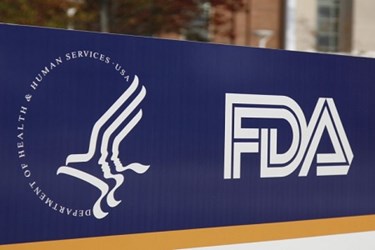FDA Organizes Workshop To Improve Hospital-Based Medical Device Reporting
By Jof Enriquez,
Follow me on Twitter @jofenriq

An investigation conducted by the U.S. Food and Drug Administration (FDA) revealed that multiple hospitals have inadequate compliance with medical device reporting requirements. Believing that the issue could be widespread, the agency has scheduled a public workshop to seek advice on improving postmarket, hospital-based surveillance mechanisms.
FDA, in cooperation with the Association of American Medical Colleges and the American Hospital Association, is holding a public workshop on December 5 to seek input from clinicians, IT system managers, and other members of the U.S. hospital community on how to improve current hospital-based surveillance efforts, as well as how hospitals can better generate and share real-world evidence in clinical settings. FDA said it also will seek support on the agency's push to integrate unique device identifiers (UDIs) into electronic health records to better monitor adverse events and facilitate continuity of care.
FDA initiated a probe in December 2015 following superbug outbreaks related to contaminated duodenoscopes and cases of power morcellators spreading hidden cancerous cells. The agency had issued updated cleaning instructions for duodenoscopes. In the case of morcellators, FDA ordered them restricted, and instructed that their labels must include a boxed warning, the most severe possible, reports Reuters.
Inspections of 17 hospitals with reports of safety issues related to those two devices revealed that some facilities didn’t submit required reports for deaths or serious injuries related to devices, according to FDA.
They also did not have adequate procedures in place for reporting device-related death or serious injury events to FDA or to the manufacturers.
Under federal law, hospitals must report medical device-related deaths or serious injury cases to both FDA and the manufacturer, if known, and device-related serious injuries to the manufacturer, or to FDA, if the manufacturer is not known.
FDA also found out that staff of those hospitals they inspected were often were not aware of nor trained to comply with all of FDA’s medical device reporting requirements.
The agency said it worked with erring hospitals "to facilitate an effective path to compliance" and no additional action against the facilities is needed at this time. However, the federal regulator believes many more hospitals nationwide could benefit from close engagement with FDA to improve reporting compliance.
"Based on the number of user facilities in the United States and the number of reports we receive, we believe that these hospitals are not unique in that there is limited to no reporting to FDA or to the manufacturers at some hospitals. We want to work with all hospitals to address these issues," wrote Jeffrey Shuren, M.D., J.D., director of FDA’s Center for Devices and Radiological Health (CDRH), in a blog post.
Shuren wrote that FDA is now reviewing "whether or not current reporting requirements should remain, be modified, or eliminated in light of more effective modern tools, such as software tools to conduct active surveillance of electronic health information that contains unique device identifiers."
He said FDA is exploring how hospitals can closely participate in the National Evaluation System for health Technology (NEST), FDA's new program for medical device postmarket surveillance.
